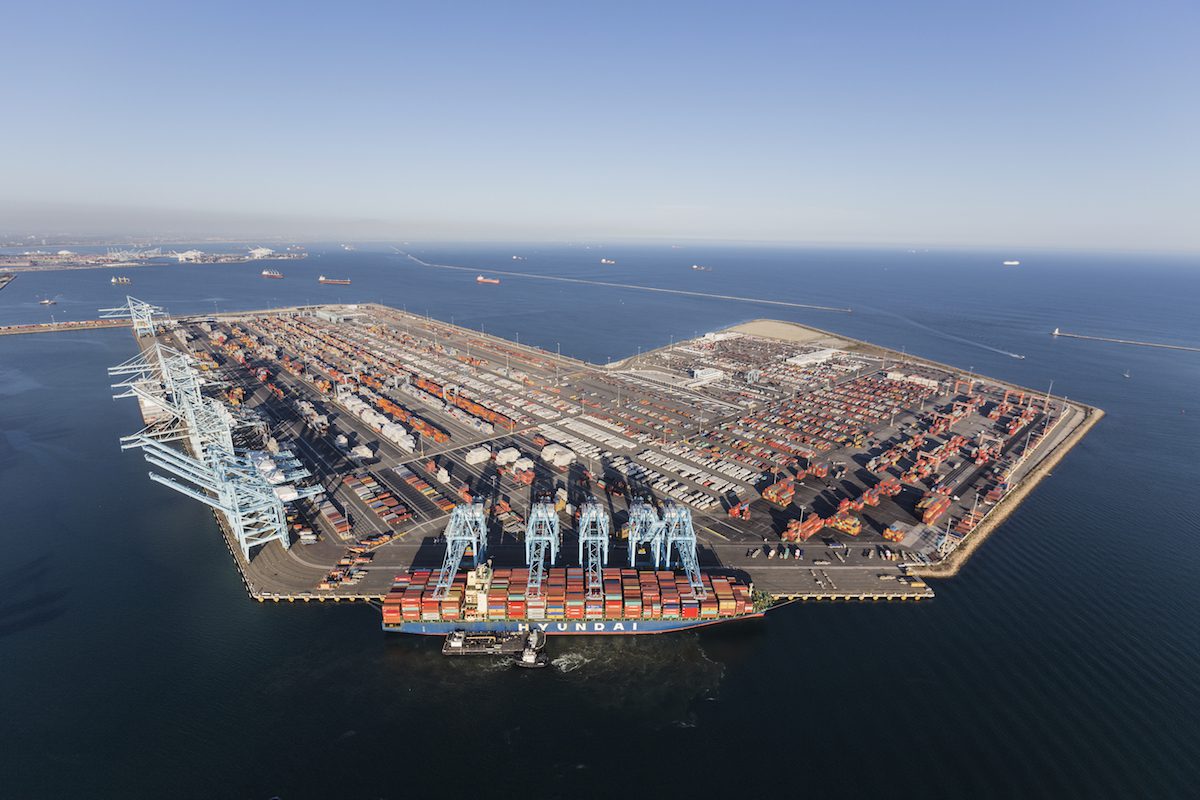UK Strikes at Heart of Russia’s Arctic Energy Empire
New maritime services ban threatens to sever lifeline for Yamal LNG exports By Paul Morgan (gCaptain) – In the frozen waters above the Arctic Circle, a fleet of specialised ships...

Port of Los Angeles. Photo: trekandshoot / Shutterstock.com
![]() By Nick Carey June 27 (Reuters) – Tariffs on U.S. imports of Chinese goods imposed by the Trump administration could hit up to 15 percent of goods moving through the Port of Los Angeles once they go into effect, the port’s executive director Gene Seroka told Reuters on Wednesday.
By Nick Carey June 27 (Reuters) – Tariffs on U.S. imports of Chinese goods imposed by the Trump administration could hit up to 15 percent of goods moving through the Port of Los Angeles once they go into effect, the port’s executive director Gene Seroka told Reuters on Wednesday.
Seroka said in a telephone interview that according to his data, imports from China coming through U.S. ports have slowed over the last two months and are down 3.8 percent in April and 8.7 percent in May.
Seroka said it was difficult to pinpoint the exact cause of declining imports, “but there’s something there… and it’s something to be mindful of as we evaluate the potential impact of tariffs.”
Los Angeles was Americas No. 1 container port in 2017, and according to government data it handled cargo valued at $284 billion, with about $145 billion of the total coming direct trade with China. Seroka said that in California one million jobs are tied to the port, with around 2.7 million employed at ports nationally.
Retail Imports Expected to Hit Record Numbers this Summer Despite Tariff Threat
Seroka said he has heard from a number of cargo ship owners “that they are contemplating pulling orders forward in order to avoid being hit with tariffs.”
Mid-year is typically the start of the Port of Los Angeles’ peak season ahead of major U.S. retail events including “Back to School” sales promotions and holiday marketing in December.
Amid uncertainty over the Trump administration’s trade policy, shipping rates on the Shanghai Containerized Freight Index (SCFI) to the U.S. West Coast have dropped nearly 20 percent since May.
In Louisiana, Trump’s Trade War Makes Biggest U.S. Port Tremble
“That decline is troubling for us as we look toward our traditional peak season,” Seroka said. “You wouldn’t normally see that fluctuation in price at this time, especially on the downward side.”
Last week the world’s second-largest container shipping company, MSC (Mediterranean Shipping Company), said that from July 4 it would suspend one of the Pacific Ocean services it runs jointly with Maersk, the world’s largest shipper, citing a “challenging operating environment for business on the Transpacific trade.”
That service does not call at Los Angeles, but Seroka said the move “tells me there’s uncertainty in the market and a certain softness that they (MSC) didn’t like looking down the line.”
(Reporting By Nick Carey; editing by Clive McKeef)
(c) Copyright Thomson Reuters 2018.

Sign up for gCaptain’s newsletter and never miss an update

Subscribe to gCaptain Daily and stay informed with the latest global maritime and offshore news
Essential news coupled with the finest maritime content sourced from across the globe.
Sign Up